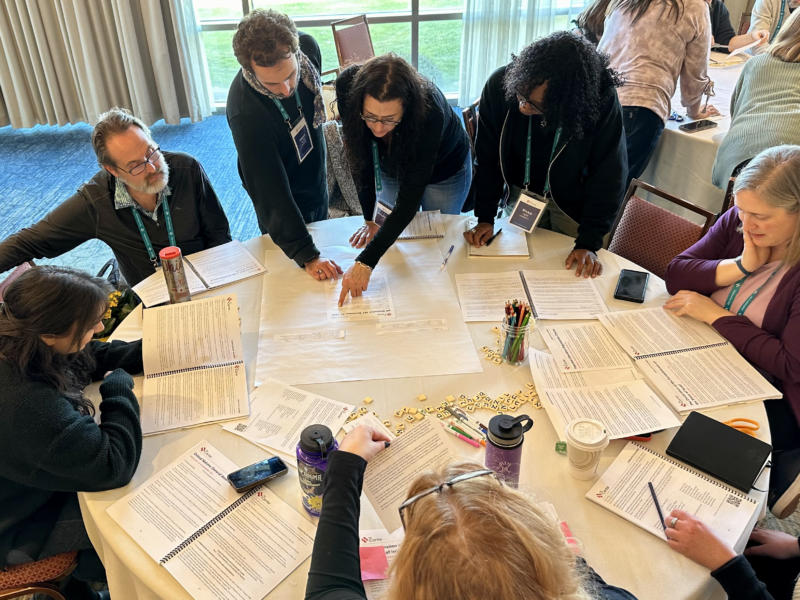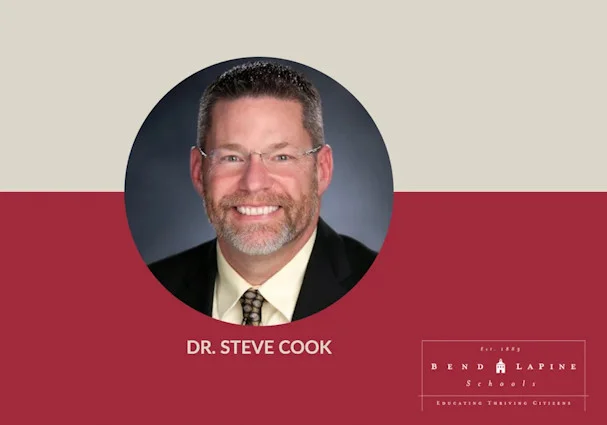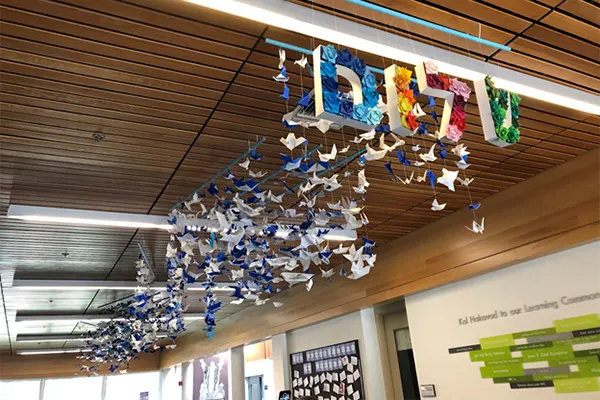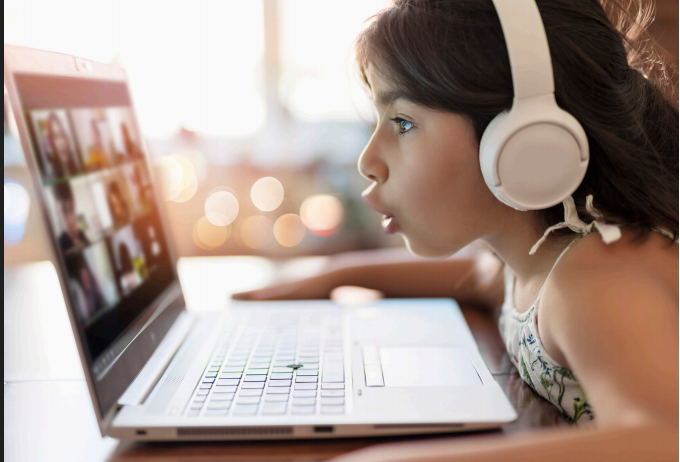
There’s no doubt that next to frontline workers, teachers have had the most challenging year of their professional lives, having to shift from in-person to online learning in the blink of an eye. Still, teachers being the optimists they often are, rolled up their sleeves and soldiered on.
We posed some questions to teachers about the year 2020 and their plans for 2021.
Congregation Neveh Shalom’s Foundation School in Portland is dedicated to providing an exceptional early childhood education for children ages 1 through 5.
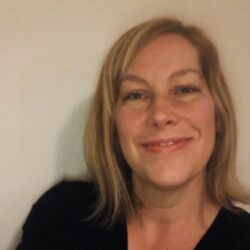 Cory Willson has been a teacher since 1998. She is currently assistant director at the Foundation School.
Cory Willson has been a teacher since 1998. She is currently assistant director at the Foundation School.
How have you been teaching lately? In-person, online or a hybrid schedule?
We are teaching in person under an emergency license, but we were virtual last March through June.
What were some of your biggest challenges teaching in 2020? What have you found to be some of your students’ biggest challenges?
My biggest challenges have been learning everything needed to keep children, teachers and families safe and putting this knowledge into practice. Staying up-to-date, protecting teachers, providing mental health support for everyone we serve, and partnering with our families in new ways since they no longer enter the school. We all count on each other in new ways to stay safe in our school/community bubble.
For students, the challenges have seemed less. They are so resilient! There was some regression while kids were home through the spring and summer. Most children are naturally moving through the experience and telling us what they need. We create an environment for them to be safe, loved and free to express their experience. I see that they are taking cues from the adults, so if we are practice good self-care, we will know how to take better care of each other.
What are some positive takeaways from 2020 that you may utilize moving forward?
We are looking for a silver lining all the time – and we find it! This year has allowed us to get creative because we threw away so many old practices and procedures. We’ve tried new things and made intentional choices that we would not have initiated if we did not have this big change in our world.
The children bring their experience of the outside world with them into our school, and we get to hear them and tell their story without shying away from hard content and big feelings. Moving forward, I know the power of creativity, community and how adaptable we are as species.
We’ve created a larger space for listening and participation as we’ve all been vulnerable and honest together. Through transparency, communication and courage, we have found many riches within ourselves and our community that will change our forward steps.
Children are very resilient, but do you have concerns about the long-term impact of this past year on your students? What are some positive effects you have noticed?
I do not worry about the long-term impact because my worry does nothing to change whatever may come, but I know this will need our attention. I am curious about what our children will bring to us that we will need to be responsive to, but I know that whatever it is, we will adapt and heal together.
All of us are resilient, and the evidence for this is astronomical! One of the positive effects I’ve noticed in people of all ages (myself included) is that we can do more than we think we can. This makes people adjust their thinking and allows them to believe new things beyond their habitual thought. THIS IS HUGE!
What are you doing to prepare for 2021?
We are currently making plans for the next school year based on projections of vaccines. We are also ready to pivot back to online learning if we need to do that this winter. Mostly we are staying informed, creative, and putting one foot in front of the other each day.
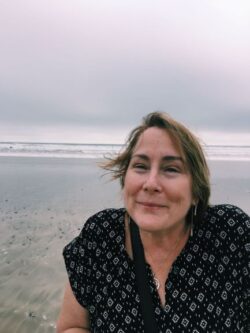 Carol Biederman has been in early childhood mental health for 20 years and a preschool teacher for 4 years. She currently teaches in the 1’s classroom.
Carol Biederman has been in early childhood mental health for 20 years and a preschool teacher for 4 years. She currently teaches in the 1’s classroom.
How have you been teaching lately? In-person, online or a hybrid schedule?
In spring, online; in-person since September and now online again.
What were some of your biggest challenges teaching in 2020? What have you found to be some of your students’ biggest challenges?
Since I’m with very young children, the biggest concern was staying connected, helping support families trying to work while parenting/keeping kids occupied; everyone is afraid of someone they love getting COVID-19.
What are some positive takeaways from 2020 that you may utilize moving forward?
Our community was enhanced in many ways by Zoom teaching this spring. There was a camaraderie that sprung up that has continued to flourish. A more realistic, “we are in this together,” not a “just teach my kid, please.”
Children are very resilient, but do you have concerns about the long-term impact of this past year on your students? What are some positive effects you have noticed?
Kids have been shocked to see my whole face if they catch me taking a sip of water, or have glimpsed me in a break area. I am worried about what social/emotional learning is not occurring because we have these masks on, and kids aren’t learning how to read facial cues. I also worry deeply about the collective anxiety these kids absorb from their families and in the wider world.
What are you doing to prepare for 2021?
I am upping my tech savviness, and creating alternative ways to connect for young children and families.
Congregation Beth Israel’s Religious School in Portland, touches the heart and soul of every student through the study of Judaism.
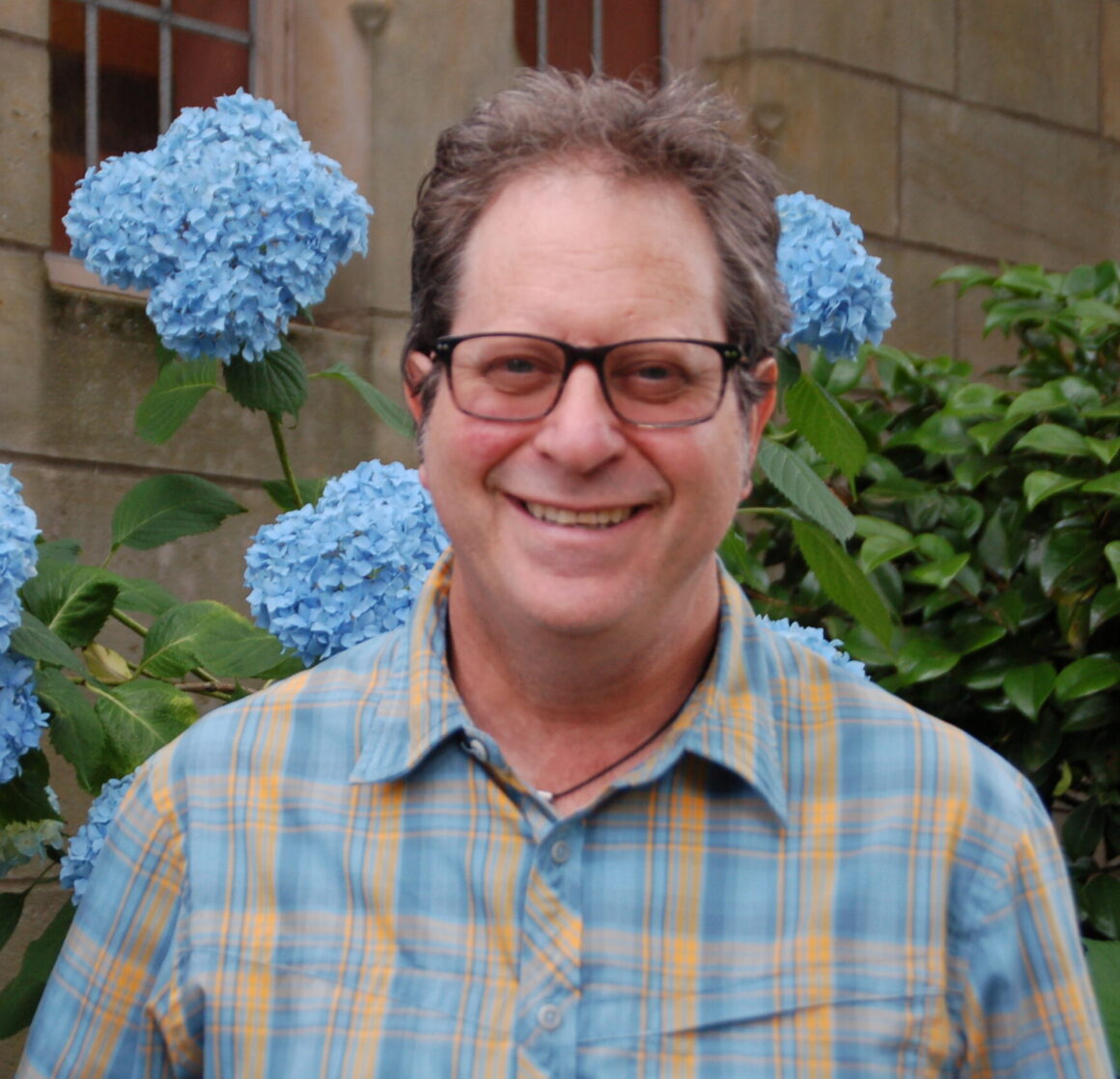 Ben Sandler has worked in different capacities in the field of education since 1994.
Ben Sandler has worked in different capacities in the field of education since 1994.
He is currently the education director for Congregation Beth Israel and also teaches in the HS Midrasha program as the core teacher for the eighth and ninth grade students.
How have you been teaching lately? In-person, online or a hybrid schedule?
The high school class has been entirely online this school year.
What were some of your biggest challenges teaching in 2020? What have you found to be some of your students’ biggest challenges?
While our Midrasha program strives to engage students in rich Jewish content from history to social justice, the core of the experience is connecting to a unique community of Jewish teens, and making lifelong friends. Building community and meeting people has been extra challenging this year, especially for our new students. Even with all the creative possibilities technology allows, the online modality makes connecting and being responsive, especially to subtler needs and interests of the students, challenging.
What are some positive takeaways from 2020 that you may utilize moving forward?
We’ve forged and expanded connections to national education webinars. Our students have had the opportunity to learn from talented individuals and hear from Jewish teens from all around the country. We’ve pivoted to smaller cooperative learning style instruction for specific topics of interest. Both of these opportunities allow our kids to connect with a wider scope of Jewish learning, and utilize a small group format for certain topics we’d like to carry forward.
Children are very resilient, but do you have concerns about the long-term impact of this past year on your students? What are some positive effects you have noticed?
I am truly awed by our students’ appreciation for all their blessings in life, even under the tremendous fear, isolation and disappointments they are experiencing during the pandemic. As we begin to better understanding the long-term impact on the kids, our Jewish learning communities are excellent places to move forward together and do the work both as individuals and as a community to heal, learn and grow.
What are you doing to prepare for 2021?
As educators, we need to continue to stay creative, be reflective in the work we do with students, engage in professional development, and prepare for multiple scenarios in terms of the physical learning environment for the coming school year.
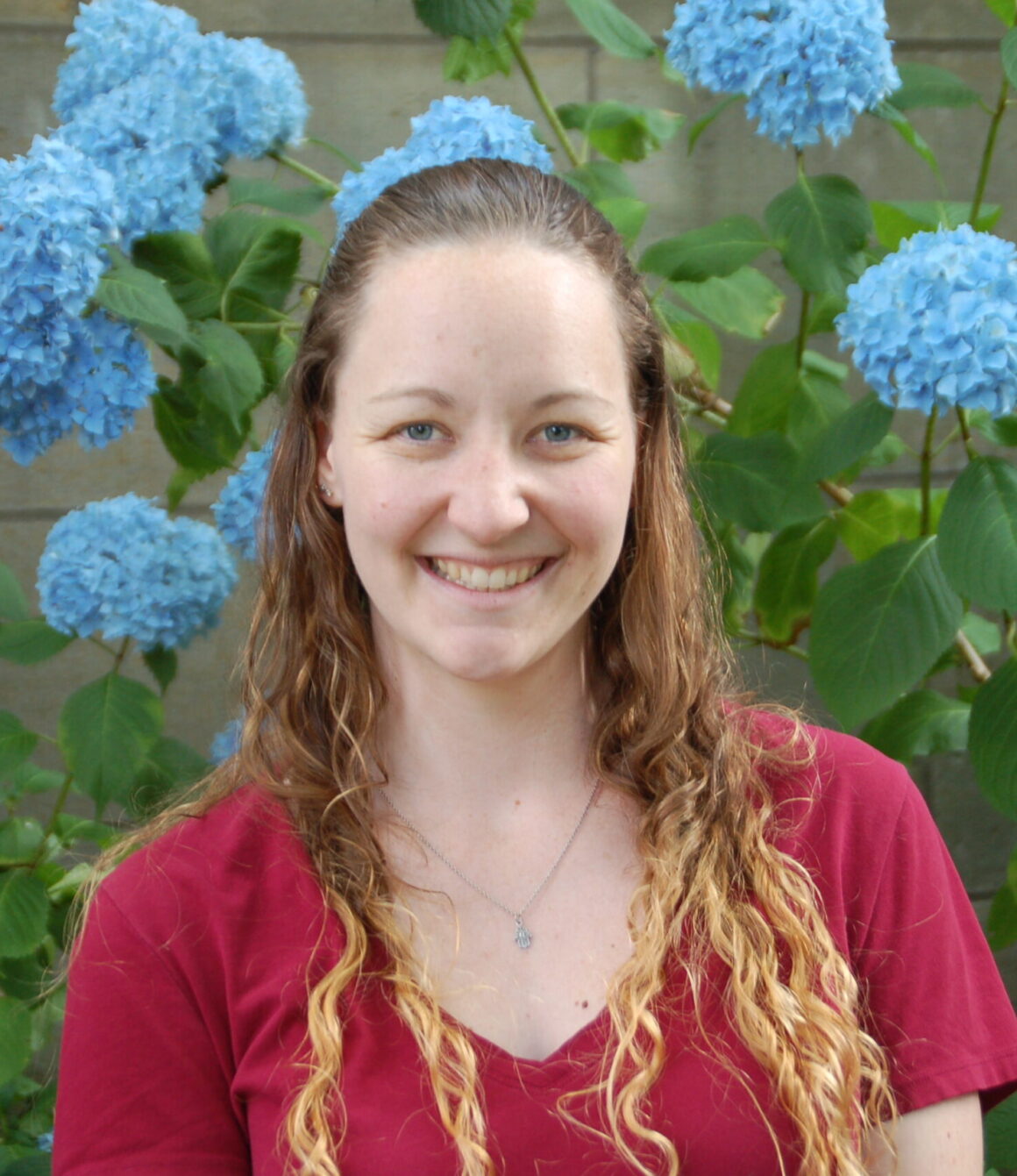 Chelsea Ferguson has been teaching for 8 years. She is currently teaching mixed high school (grades 8-12) students.
Chelsea Ferguson has been teaching for 8 years. She is currently teaching mixed high school (grades 8-12) students.
How have you been teaching lately? In-person, online or a hybrid schedule?
We hold virtual class weekly for religious school. The teens have a mixed schedule of grade-level classes, national workshops, electives they choose, and community/fun time together led by our youth group, PARTY.
What were some of your biggest challenges teaching in 2020? What have you found to be some of your students’ biggest challenges?
Our biggest challenges as a religious school, I think, have been keeping up with the shifting needs of our families and balancing planning ahead with being responsive as things change so quickly – especially in the emotional landscape. I think our students have been faced with managing a ton of their own time; without learning the skills to do so. I imagine the new virtual routine, which is often entirely up to them being motivated, is tough for all ages. Most students have at least some idea of what works for them, but few of those things look the way they did before.
What are some positive takeaways from 2020 that you may utilize moving forward?
It’s become abundantly clear that our community truly enjoys each other, which is touching and fulfilling to see. As a synagogue, I think we will continue to lean on that as we move forward in finding ways to bring people together and build bridges for connection. I think we learned to focus our programming on lowering boundaries for congregants to build relationships with one another, and that will serve us well going forward.
Children are very resilient, but do you have concerns about the long-term impact of this past year on your students? What are some positive effects you have noticed?
Long term, I worry our students will be burnt out for a long while. I worry that the stress and the lack of clarity in so many parts of their lives will lead to them being emotionally drained. I’ve noticed that students have a much lower threshold for what they think they can handle, and what feels comfortable. Teens are more likely not to push hard to do something because (I believe) they are just so tired from trying to make all the normal things work – which I empathize with as an adult trying to do the same thing.
What are you doing to prepare for 2021?
We are thinking hard about what connection looks like these days and doing a lot of outreach to learn from what we’ve done already. We are planning big events one at a time, knowing that a lot may change. Our top priority is giving chances to be together (virtually or otherwise) as safely and as meaningfully as possible.
Maimonides Jewish Day School is a kindergarten through eighth grade school committed to teaching the whole child, inspiring lifelong learning, and providing personalized, meaningful, and empowering Judaic and general studies education for a diverse community of Jewish children.
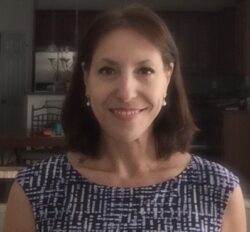 Karen Brenner has been an educator for nearly 20 years in both private and public schools. She currently teaches the Upper Elementary class which encompasses third through fifth grade.
Karen Brenner has been an educator for nearly 20 years in both private and public schools. She currently teaches the Upper Elementary class which encompasses third through fifth grade.
How have you been teaching lately? In-person, online or a hybrid schedule?
I have been teaching in person since October, but also have a couple of students learning from home and joining class remotely. (Maimonides is also currently operating as an Emergency Child Care facility.)
What were some of your biggest challenges teaching in 2020? What have you found to be some of your students’ biggest challenges?
The biggest challenge I faced was initially switching to completely virtual teaching and learning to utilize the different platforms available. This happened in less than two weeks from the date the schools were closed in March 2020. It was challenging not to be with the students in person for the end of the school year in June, and not to have in-person interactions with students and staff.
I think the students’ biggest challenges were much the same. They went from being in a school building with their friends and teachers to being isolated from those very people within one weekend. That is a difficult adjustment for young students. There was also a learning curve for students to understand how to navigate remote learning online and how to use the virtual learning platforms. Now that we are back to class in person, wearing masks all day is another challenge we are all facing.
What are some positive take-aways from 2020 that you may utilize moving forward?
Learning to be more flexible and allowing for a slower pace has been a positive outcome of 2020. I’ve also become more appreciative of the support and friendships of those around me and in the education community. I’ve also enjoyed learning new technologies that before 2020, I didn’t utilize and paid little attention to. With the speed of technological advancements, it’s become apparent that keeping abreast of these leaps is very important for educators, students and their families.
Children are very resilient, but do you have concerns about the long-term impact of this past year on your students? What are some positive effects you have noticed?
I am concerned about the anxiety level I’ve seen in some students. I feel that being isolated from their friends and the school community may leave long-lasting effects on students’ anxiety levels for those still learning remotely. It also has left many feeling uncertain about the future. Positive impacts of this past year have been in strengthening family ties and taking a slower, more thoughtful approach to our day-to-day lives and the people and activities with which we fill them.
What are you doing to prepare for 2021?
I am continuing to keep up with changes in technologies and new online education platforms, as well as immersing myself in learning how to spot potential emotional issues students may exhibit while their world is so uncertain. It’s even more important to have a deeper understanding of a child’s social and emotional growth during such upheaval in their daily lives.



